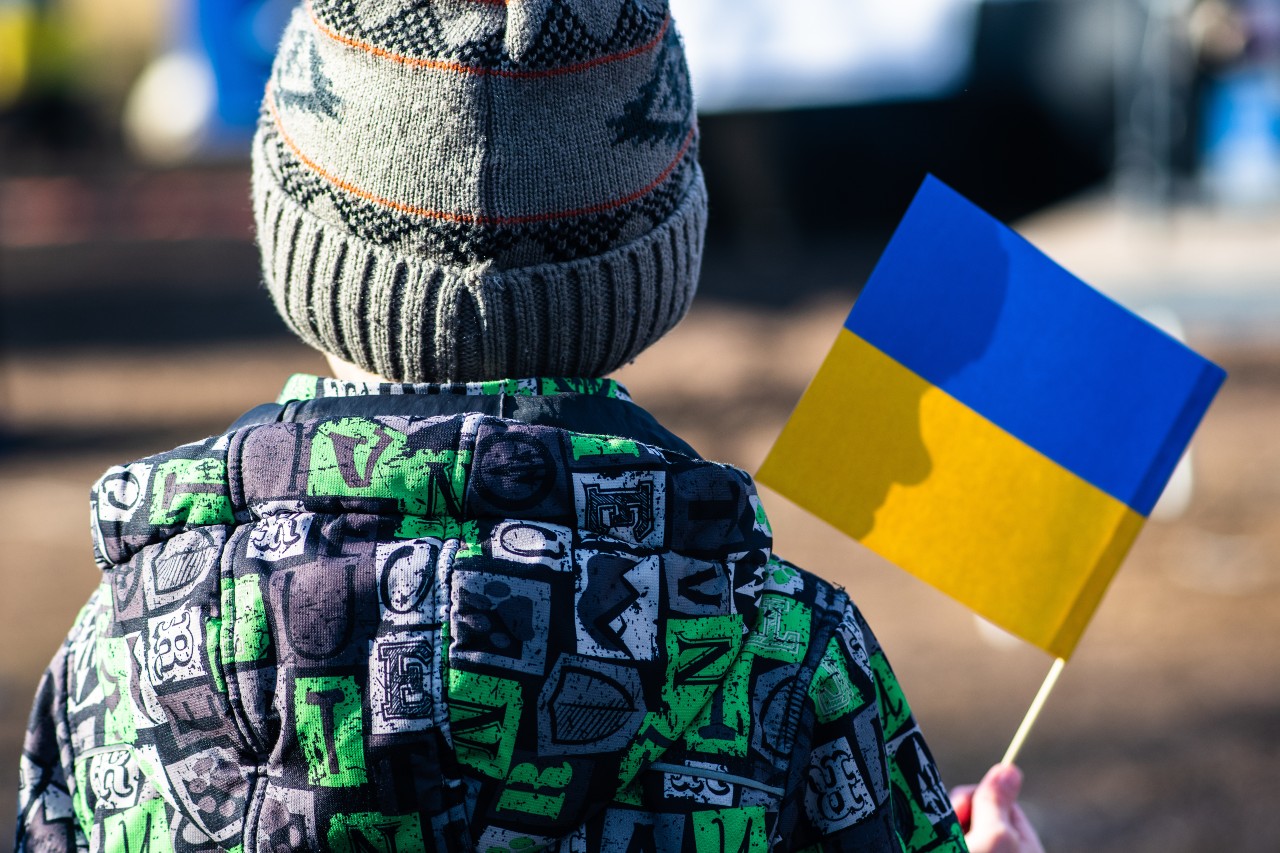Since Russian troops crossed the border and the invasion of Ukraine began, nearly three and a half million Ukrainians have fled the country, according to the latest data provided by UNHCR. Of these, UNICEF estimates that nearly half are children.
In the early hours of 24 February, Ukrainian children woke up to the sound of air raid alarms, followed by the sound of shelling, explosions and the beginning of a traumatic, life-changing experience.
In just a few days, thousands of children left their homes, leaving behind their toys, friends and routines to flee a war they could not understand. They traded the comfort of home for the coldness of bomb shelters, friends for strangers with whom to share fears and uncertainty, and a stable life for an uncertain future.
Exposure to images on the internet that contribute to reliving painful experiences and add to their suffering must be controlled
After the shock of seeing the buildings and cities that have been part of their childhood destroyed, they embarked on a journey to flee the country that involved long waits, vast distances and great hardship.
While ensuring their physical well-being is a priority, the effect that their experiences can have on the mental health of the Ukrainian child population should not be overlooked.
Since the first shelling, children have faced stressful situations that are far removed from the stability that should characterise childhood. It is normal for them to manifest emotional problems such as fear of death, constant worries and continuous sadness. It is also common, especially in the youngest children, for them to be irritable and impatient, to have sleep problems and to show regressive behaviours such as re-wetting the bed.
The absence of the father, who must remain to defend the country, can have a major impact on children and contribute to excessive attachment to their mother or the family member who remains with them. Some children may experience post-traumatic stress and relive their traumatic experiences weeks or even months later, even though they are already in a safe environment and away from the war.
They need a safe and stable environment
One of the first objectives in addressing the mental health of Ukrainian children is to provide them with a safe and stable environment, so that they can regain their sleeping and eating routines as soon as possible. The long and frequent movements in the first days after leaving the country make it difficult to provide psychological support, but their lives should be made as normal as possible as soon as they are able to stay in a stable place.
Emotional problems such as fear of death, constant worries and ongoing sadness are normal
Providing space for play and promoting contact with other children in refugee camps can help them to reduce their fears and feel more secure. Playing, drawing, dancing and participating in childhood activities can help to normalise their daily lives and take away from the stress they perceive in the environment. In addition, sharing time with others in a similar situation allows for mutual support and strengthens their ability to cope with adversity.
The importance of expressing emotions
Expressing their emotions is important for them to be able to adequately process the situation they are experiencing. It is common for some children to avoid talking about what is happening, to act as if nothing is wrong, or to show no apparent signs of emotional distress. In such cases, we should not assume that they have not been affected by their experiences. The impact on their emotional well-being may not be visible at the time, but it may well emerge later.
It is therefore important to convey to them that it is normal to feel sad, angry or worried, which can help them to better express their emotions. Encouraging them to write down how they feel or draw their fears is also advisable for proper emotional processing.
Tips for caregivers
A myriad of doubts and worries can occupy the minds of refugee children. Parents or caregivers should provide age-appropriate answers to their concerns.
Avoiding questions may increase their anxiety, as they are direct bystanders to what is happening. However, conversations about war or decision-making should be avoided in front of children, as their cognitive capacity will not allow them to adequately understand adult language.
Exposure to images on the internet that contribute to reliving painful experiences and increase their suffering should also be controlled. The emotional state of children depends to a large extent on the emotional well-being of their parents. For this reason, it is important that caregivers also receive psychological support in order to cope with uncertainty and to provide a safe and calm environment for their children.
The road to emotional recovery
Providing stability and promoting as much normality as possible can help Ukrainian children arriving in a new country to gradually recover their emotional well-being. This is not an easy goal, as they are faced with a new life, an unfamiliar language, different cultural norms and the uncertainty of not knowing when they will return home.
The terrible memories of their experiences can be alleviated with a safe environment, a warm welcome, and solidarity initiatives that help them to regain trust in others and to appreciate kindness in the face of war.
Resilience is the ability to overcome adverse circumstances, adapting and emerging stronger from a traumatic situation. Integrating the experience into your life story and being able to remember the past without damage to your emotional stability is an indicator of acceptance of what you have experienced. Turning trauma into resilience is a firm step towards moving forward. To move forward with hope for the future.



